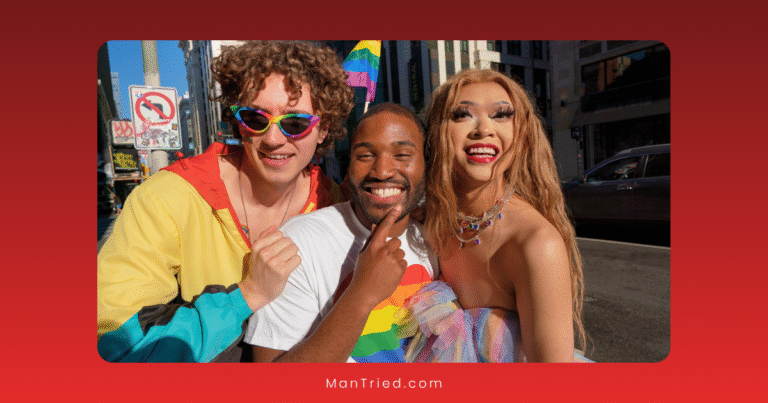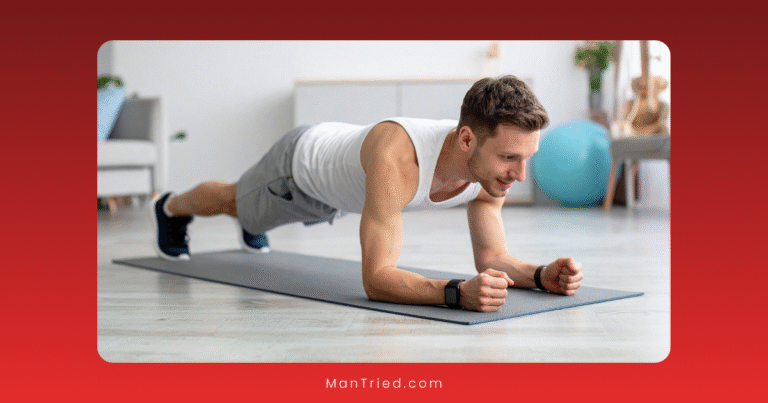The Hookup Culture and Performance Anxiety: Navigating Modern Sexual Expectations

In today’s digital dating landscape, casual sexual encounters facilitated by dating apps have become increasingly common, particularly among young adults. While the hookup culture offers freedom and exploration, it also creates a unique set of pressures and expectations that can lead to performance anxiety. This intersection of casual sex and psychological stress affects people across gender identities, though often in different ways.
This article explores the relationship between modern hookup culture and sexual performance anxiety, offering insights and strategies for navigating these complex waters with greater confidence and authenticity.
Understanding the Modern Hookup Culture
The Reality vs. Perception Gap
Despite popular belief, the hookup culture may not be as pervasive as many assume. According to the 2024 National College Health Assessment, 50.4% of college males and 46.1% of college females reported never having vaginal sex. Furthermore, among sexually active college students, 71.5% of males and 76.3% of females reported having just one sexual partner in the previous 12 months.
“There’s a significant misperception about how much casual sex is actually happening,” explains Dr. Lisa Martinez, a clinical psychologist specializing in young adult sexuality. “Many people believe everyone else is having frequent hookups, creating pressure to participate even when they’re not personally interested.”
This perception gap can create a sense of inadequacy and social pressure, contributing to anxiety even before any sexual encounter occurs.
The Role of Dating Apps
Dating apps have transformed how people meet potential partners, with nearly three in ten U.S. adults reporting using a dating site or app as of 2025. These platforms have created both opportunities and challenges:
- Expanded access to potential partners beyond traditional social circles
- Ambiguity of intentions, with some users seeking casual encounters while others hope for relationships
- Commodification of dating, where people are rapidly evaluated based on limited information
- Paradox of choice, where endless options can lead to decision fatigue and dissatisfaction
“Dating apps have gamified romantic and sexual connections,” notes relationship researcher Dr. Michael Chen. “The constant swiping, matching, and messaging can create a mindset where people are treated as interchangeable options rather than unique individuals.”
This environment can heighten anxiety about measuring up to perceived competition and meeting the expectations of partners who may have many other options available.
The Nature of Sexual Performance Anxiety
What Is Performance Anxiety?
Sexual performance anxiety refers to fears and concerns about one’s ability to perform sexually in ways that meet perceived expectations. These worries can manifest before, during, or after sexual encounters and often create a self-fulfilling prophecy where anxiety itself interferes with sexual function and enjoyment.
A recent study involving 51 individuals found that feelings of inadequacy were the most commonly reported issue among those experiencing sexual performance anxiety. These feelings can manifest in various ways:
- Worry about physical appearance
- Concern about sexual technique or experience
- Fear of not satisfying a partner
- Anxiety about specific sexual functions (maintaining an erection, reaching orgasm, etc.)
- Distracting thoughts during intimate moments
Gender Differences in Performance Anxiety
While performance anxiety affects people of all genders, research suggests some differences in how it manifests:
For men and masculine-identifying individuals:
- Greater focus on physical performance metrics (erection quality, stamina, penis size)
- Concerns about satisfying partners through specific sexual acts
- Pressure to initiate and lead sexual encounters
- Anxiety about comparison to previous partners
For women and feminine-identifying individuals:
- More emphasis on body appearance during sex
- Concerns about taking too long to reach orgasm
- Pressure to appear enthusiastic and responsive
- Anxiety about expressing desires and boundaries
Despite these differences, a study of 228 couples found that higher levels of sexual performance anxiety in one partner were associated with higher sexual distress and lower satisfaction in both partners, highlighting how these concerns affect the entire sexual dynamic.
Modern Factors Amplifying Performance Anxiety
Several contemporary factors have intensified performance anxiety, particularly in the context of hookup culture:
Pornography and Media Influence
Mainstream pornography and media portrayals of sex set unrealistic standards for:
- Body types and genital appearance
- Sexual stamina and techniques
- Emotional detachment during casual encounters
- Ease of arousal and orgasm
“Films and TV have promoted an unrealistic idea of sex that few can emulate in real life,” notes sex therapist Dr. Sarah Johnson. “When people compare their real experiences to these fictional portrayals, they often feel inadequate.”
Social Media and Digital Comparison
Social media platforms create additional pressures through:
- Curated representations of relationships and attractiveness
- Implied sexual success of others
- “Highlight reels” that omit the awkwardness and vulnerability of real intimacy
- Constant exposure to idealized body images
Hookup-Specific Pressures
The casual nature of hookups creates unique anxieties:
- Limited communication before sexual encounters
- Uncertainty about partner preferences and boundaries
- Pressure to perform well with someone unfamiliar
- Concern about reputation in shared social circles
- Less emotional safety compared to committed relationships
Alex, a 27-year-old who actively participates in hookup culture, shares: “With a regular partner, you can talk about what works and what doesn’t. In a hookup, there’s this pressure to be amazing right off the bat, with no instruction manual. It’s like being expected to ace an exam without knowing what’s on it.”
The Psychological Impact
The intersection of hookup culture and performance anxiety can have significant psychological effects:
Cycle of Anxiety and Avoidance
Performance anxiety often creates a negative feedback loop:
- Anxiety about sexual performance
- Sexual difficulties due to anxiety
- Increased anxiety based on previous experiences
- Avoidance of sexual encounters
- Reduced opportunity to build confidence and skills
Impact on Self-Esteem and Identity
For many young adults, sexual performance becomes tied to their sense of self-worth:
- Equating sexual “success” with personal value
- Internalizing perceived rejection as evidence of inadequacy
- Developing shame around natural sexual responses and needs
- Difficulty separating sexual function from identity
Connection to Broader Mental Health
Research has found direct correlations between dating app use, hookup culture participation, and mental health challenges:
- Higher levels of depression and anxiety
- Increased feelings of loneliness despite more connections
- Vulnerability to addictive patterns of app use
- Emotional exhaustion from constant evaluation
A 2025 study found that frequent users of dating apps report difficulty regulating their swiping behavior, with some browsing hundreds of profiles for up to 4 hours daily, leading to decision fatigue and emotional burnout.
Strategies for Navigating Modern Sexual Expectations
Despite these challenges, there are effective approaches for managing performance anxiety in the context of hookup culture:
Reframing Expectations
Focus on Connection Over Performance
“Sexual encounters are about mutual exploration, not a performance to be evaluated,” explains sex educator Jordan Williams. “Shifting your mindset from ‘performing well’ to ‘connecting authentically’ can significantly reduce anxiety.”
Practical approaches include:
- Removing goal-orientation (particularly around orgasm)
- Emphasizing sensory experience over achievement
- Viewing sex as a collaborative experience rather than a test
Normalizing Sexual Variation
Understanding the wide range of normal sexual responses can reduce anxiety:
- Recognizing that arousal fluctuates naturally
- Acknowledging that bodies respond differently in different contexts
- Accepting that sexual preferences and needs vary widely
Communication Strategies
Pre-Encounter Communication
Even in casual contexts, brief communication can reduce anxiety:
- Expressing general preferences without excessive detail
- Asking open-ended questions about what a partner enjoys
- Establishing basic boundaries and consent parameters
- Setting realistic expectations about the encounter
In-the-Moment Communication
During sexual encounters, simple communication can enhance the experience:
- Using positive feedback for what feels good
- Gentle guidance rather than criticism
- Check-ins that don’t disrupt the flow
- Permission to adjust or try different approaches
Mindfulness and Embodiment Practices
Grounding Techniques
Simple practices can help manage anxiety in sexual situations:
- Deep breathing to activate the parasympathetic nervous system
- Body scan to reconnect with physical sensations
- Present-moment awareness to reduce anticipatory anxiety
- Sensory focus exercises to stay connected to the experience
Nervous System Regulation
“Performance anxiety is fundamentally a nervous system issue,” notes somatic psychologist Dr. Rebecca Chen. “Learning to regulate your nervous system can transform your sexual experiences.”
Helpful approaches include:
- Regular meditation practice to reduce baseline anxiety
- Progressive muscle relaxation techniques
- Breath work specifically designed for sexual contexts
- Movement practices that promote body awareness
Healthier Approaches to Hookup Culture
Intentional Participation
Rather than defaulting to cultural expectations, consider:
- Clarifying your personal values around casual sex
- Defining what constitutes a positive sexual experience for you
- Setting boundaries that align with your emotional needs
- Choosing partners based on comfort and communication style rather than just attraction
Building Support Systems
Navigating hookup culture is easier with support:
- Honest conversations with trusted friends
- Communities that normalize sexual learning and growth
- Professional support when needed
- Resources that provide accurate sexual information
When to Seek Professional Help
While some performance anxiety is normal, consider professional support if:
- Anxiety consistently prevents enjoyment of sexual activities
- Avoidance of sexual encounters is affecting quality of life
- Performance concerns are causing significant distress
- Anxiety is linked to deeper issues like trauma or body dysmorphia
- Self-medication with substances has become a pattern
Options for support include:
- Sex therapists specializing in performance anxiety
- Psychologists with expertise in sexual health
- Support groups for sexual confidence
- Relationship counselors (for anxiety within relationships)
Moving Beyond Performance: Towards Sexual Authenticity
The ultimate goal in addressing performance anxiety isn’t perfect sexual performance but authentic sexual expression.
Embracing Vulnerability
“The irony is that embracing vulnerability often leads to better sexual experiences than striving for perfection,” says intimacy coach Maya Rodriguez. “When we allow ourselves to be authentic—including acknowledging nervousness or uncertainty—we create space for genuine connection.”
Steps toward vulnerability include:
- Acknowledging anxiety rather than hiding it
- Expressing desires and boundaries honestly
- Being willing to learn and adjust
- Accepting that sexuality evolves throughout life
Redefining Sexual Success
Rather than measuring sexual success by performance metrics, consider alternative definitions:
- Mutual enjoyment and pleasure
- Clear communication and consent
- Learning about yourself and others
- Emotional safety during vulnerability
- Growth in comfort and confidence over time
Conclusion: Balancing Freedom and Authenticity
The modern hookup culture offers unprecedented sexual freedom and opportunities for exploration. However, navigating this landscape requires balancing that freedom with authentic self-expression and realistic expectations.
Performance anxiety thrives in environments where external validation and comparison dominate. By shifting focus to personal values, genuine connection, and open communication, it’s possible to participate in casual sexual culture while maintaining psychological wellbeing and authentic expression.
Whether you’re actively participating in hookup culture or navigating committed relationships, the principles remain the same: authentic communication, realistic expectations, present-moment awareness, and self-compassion create the foundation for satisfying sexual experiences.
As Dr. Martinez concludes: “The most liberating sexual mindset isn’t freedom from all expectations, but the freedom to be authentically yourself—with all your unique preferences, responses, and needs—and to connect with partners who appreciate that authenticity.”
Have you experienced performance anxiety in casual sexual encounters? What strategies have helped you navigate these situations? Share your thoughts in the comments below.






